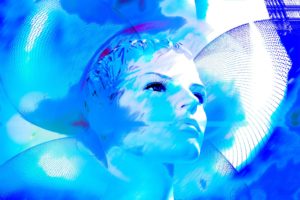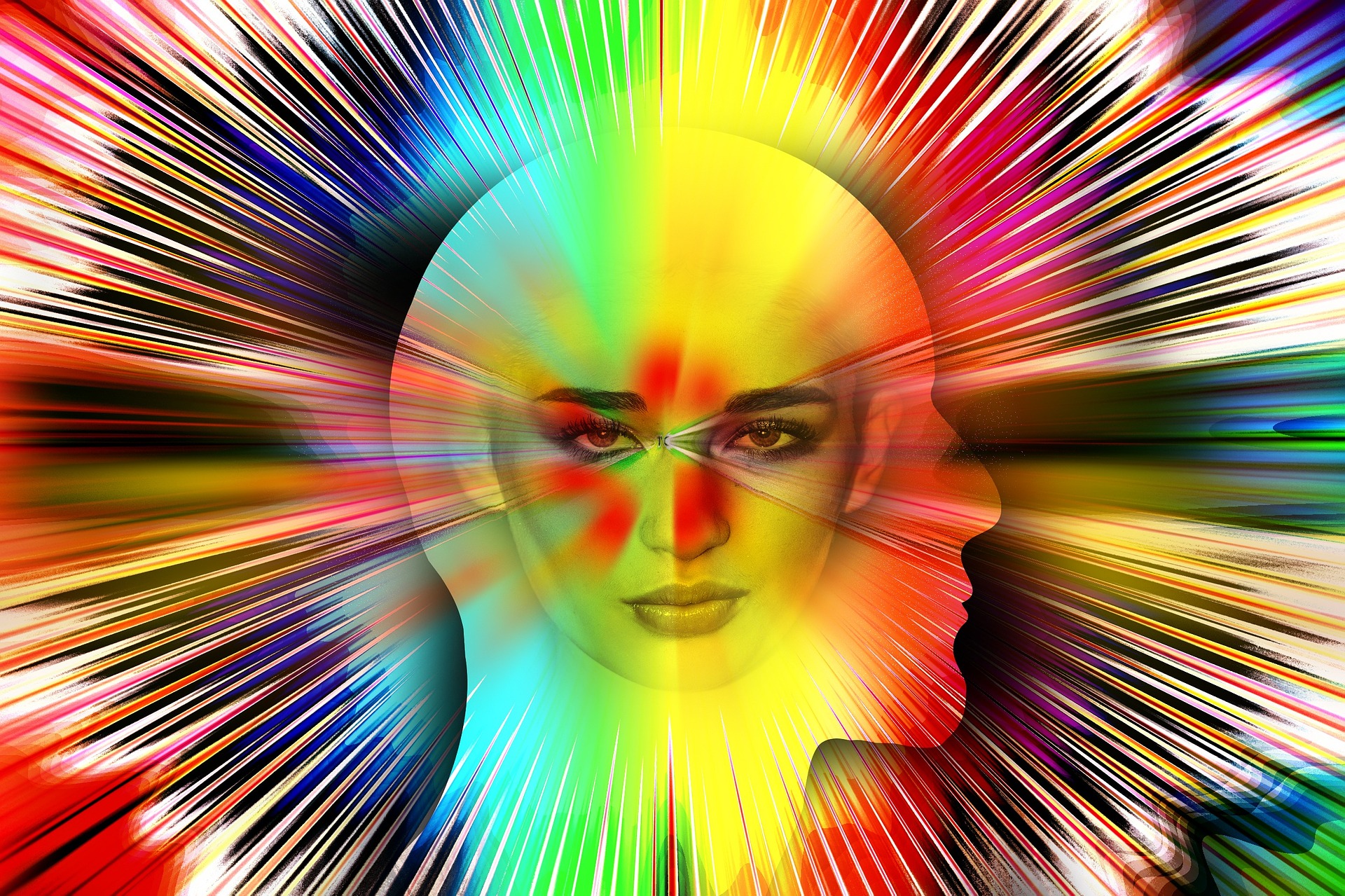Can THC make you psychotic or cause those who have “latent” schizophrenia to manifest itself? And can CBD treat schizophrenia?
What is schizophrenia?
Schizophrenia is the general term given to a group of conditions in which the person loses touch with reality. It usually starts in the late teens to early twenties – before the brain is fully developed.
Biochemically, there is a dysfunction in two chemicals in the brain: glutamate & dopamine. The glutamate is abnormally low and the dopamine is excessively high.
- Low glutamate results in low NMDA. NMDA helps in learning & memory. When the glutamate is low, the NMDA will then be low, and the schizophrenic’s cognitive skills will be negatively affected.
- High dopamine can cause psychosis. Psychosis is a term used to describe the “positive” symptoms of schizophrenia which include delusions, hallucinations, & disorganized speech.
Can THC make you psychotic?
Yes, but thankfully, not in everyone. THC works by binding to the CB1 receptor which causes dopamine to increase. Too much THC can increase dopamine to such an excessive level that the user becomes psychotic.
Can THC cause those who have “latent” schizophrenia to manifest itself?

While THC can make you psychotic it is CBD that can treat Schizophrenia
Yes. The brain begins to develop in the fetus, before we are born, and the “wiring” of the brain does not finish until young adulthood – around age 23. Exposure to THC before the brain is fully developed can cause permanent “rewiring” of the brain and unleash latent psychotic symptoms of one who is predisposed to schizophrenia. Most young adults do not have this predilection, but no one knows which young adult is at-risk until it is too late.
How is it that THC can aggravate the psychosis of schizophrenia, but CBD cannot?
THC binds to the CB1 receptor in the amygdala, resulting in the release of dopamine, which helps to reduce anxiety. People with schizophrenia are more sensitive than normal people to dopamine release. As a result, the dopamine that is caused by THC can create a schizophrenic attack.
CBD (cannabidiol) has no effect on dopamine because it works inside the cell, not on the cell surface – where THC works. CBD inhibits FABP (fatty acid binding protein) which results in increased anandamide, a fatty acid neurotransmitter which gives one the sense of emotional centeredness and bliss.
Do people who are already suffering with schizophrenia “gravitate” toward cannabis?
Yes. Those who have schizophrenia have extreme anxiety to the extent that they become disconnected with reality. By necessity, they seek out medications to help them. The scientific and medical community have observed that there is a greater percent of those with schizophrenia using cannabis for self-medication than in the non-schizophrenic population.
Proof of CBD’s benefit in the treatment of psychosis
- In studies performed on animals, high doses of CBD, which bind to the D2 receptor in the amygdala (the same receptor that conventional antipsychotics bind to), resulted in a decrease in the symptoms of schizophrenia.
- In King’s College London Institute of Psychiatry, a study was conducted on eighty-eight humans, where half of the patients were given placebo and half of the patients were given CBD. Both were allowed access to their existing antipsychotic medications. The duration of the trial was six weeks. Patients treated with CBD showed a significant reduction in symptoms of schizophrenia, with fewer side effects as opposed to those treated with placebo. The psychiatrists who evaluated all eighty-eight patients confirmed that those who received CBD had improved.
- CBD has been observed in multiple case reports on humans as being effective in the treatment of schizophrenia. Doses of 600 mg a day for over four weeks have been used in studies with a remarkable safety profile.
- Functional MRI studies on the brain reveal that the antipsychotic benefits that CBD give are located in the limbic system – the part of the brain that is involved in the psychotic symptoms of schizophrenia.
Take home points:
CBD can treat schizophrenia because it:
(1) Blocks the ability of the CB1 receptor, when stimulated, to cause psychosis, and
(2) CBD blocks the D2 receptors in the limbic system which are excessively activated in schizophrenia.
CBD increases anandamide – the bliss hormone – which gives the person a sense of centeredness, something which is grossly lacking in those suffering with the mental illness of schizophrenia.
References:
“Safety and side effects of cannabidiol, a Cannabis sativa constituent.” Curr Drug Saf. 2011 Sep 1;6(4):237-49.
“Cannabis Use and Risk of Psychiatric Disorders Prospective Evidence from a US National Longitudinal Study.” JAMA Psychiatry. 2016;73(4):388-395.
“Does cannabis use predict the first incidence of mood and anxiety disorders in the adult population?” Addiction. 2007;102(8):1251-1260.
“Association between cannabis use and schizotypal dimensions—a meta-analysis of cross-sectional studies.” Psychiatry Res. 2014;219(1):58-66.
“Cannabis use and mental health in young people: cohort study.” BMJ. 2002;325(7374):1195-1198.
“Cannabis dependence and psychotic symptoms in young people.” Psychol Med. 2003;33(1):15-21.
“Cannabis use and psychosis: a longitudinal population-based study.” Am J Epidemiol. 2002;156(4):319-327.
“Improved Social Interaction, Recognition and Working Memory with Cannabidiol Treatment in Prenatal Infection (poly I:C) Rat Model.” Neuropsychopharmacology. 2017 Jun;42(7):1447-1457
“A critical review of the antipsychotic effects of cannabidiol: 30 years of a translational investigation.” Curr Pharm Des. 2012;18(32):5131-40.
“Cannabis and psychosis: what causes what?” F1000 Med Rep. 2013; 5: 1. Published online 2013 Jan 11
“A clinical and metabolic study of acute intoxication with Cannabis sativa and its role in the model psychoses.” J Ment Science. 1958;104:972–999.
“Cannabidiol as an antipsychotic: a double-blind, controlled clinical trial of cannabidiol versus amisulpride in acute schizophrenia.” 15th Annual Symposium on Cannabinoids. Clearwater, Florida: Cannabnoid Research Society
“Blockade of effects of smoked marijuana by the CB1-selective receptor antagonist SR141716.” Arch Gen Psychiatry. 2001;58:322–328
“Cannabis Could Yield Novel Antipsychotics.” NEJM Journal Watch. Nov 4, 2016
“Cannabidiol is a partial agonist at dopamine D2High receptors, predicting its antipsychotic clinical dose.” Translational Psychiatry volume6, pagee920 (2016)









